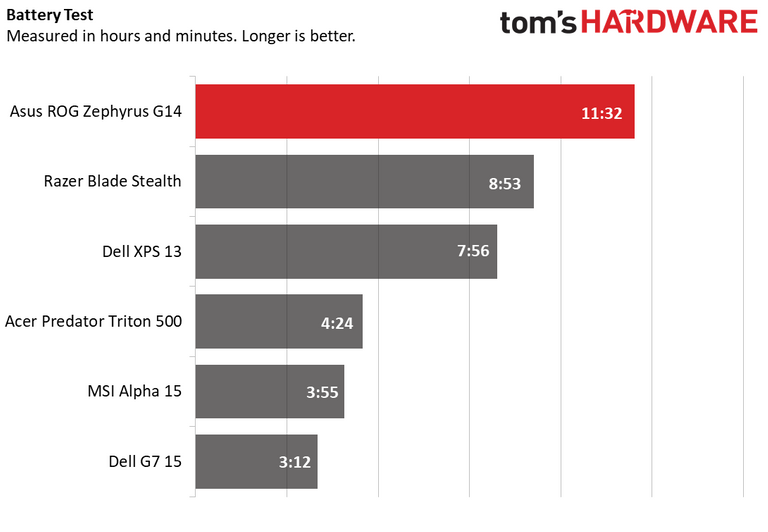I have been writing about AMD since pretty much the start. One of my best articles on Steem was about AMD's future at the end of 2017. I was incredibly bullish on Zen 2 and AMD then.
Zen 1 was pretty good on the desktop and servers, but for the lucrative, high-volume laptop market, Intel still reigned supreme. When Zen 2 hit desktops in July 2019, it was pretty obvious AMD were on to a winner. Looking at the incredible power efficiency gains, it was always going to be a killer product for the laptop. But even I didn't expect it would be quite this good. Or, rather, that Intel would be this far behind.
There are plenty of great reviews of AMD's new Ryzen 9 4900HS APU powering the Asus ROG Zephyrus G14. Of those, I'd recommend Hardware Unboxed as the most comprehensive of the lot, though it does lack battery life testing. I'm not going to get into numbers here, but just offer you my overall impressions.
What AMD has created here is pretty much the best mobile processor since... at least Haswell, if ever. What we have now is a CPU that is faster than Intel's fastest Core i9 mobile CPUs, by a long shot. Heck, it's nearly as fast as Intel's desktop Core i7 CPUs! It's GPU is faster than NVIDIA's MX250, pretty much obsoleting that entry-level GPU, and of course, runs rings around even Intel's much-improved Ice Lake GPU. But what's truly incredible is that AMD has packed in all of this performance in just 35W. Intel's top-end part pushed to 90W still can't quite match it! On the other hand, power matching Intel to 35W means AMD is over 50% ahead. These are just crazy numbers.
The end result is AMD is offering the CPU performance of those massive, high-end laptops in the chassis of a relatively slim and light gaming machine.
This is perhaps the most incredible result of the lot. The AMD laptop offers over double the battery life of the high-end gaming machines. Heck, it even outlasts the more portable Intel alternatives, despite offering an entirely different class of performance!
But wait, the incredible news just keeps on coming. The Asus ROG Zephyrus G14 costs only $1,500, while those aforementioned high-end Core i9 gaming machines cost well over $2,000!
By now, you'll feel that all of this sounds far too good to be true... except it isn't. It really is that good - AMD is operating on an entirely new paradigm. It does have some minor flaws - the Intel CPUs are slightly ahead on data-intensive applications, but that's about it.
It's rather telling that Asus has ditched Intel entirely from their premium gaming lineup. The G14 is now Asus' flagship portable gaming laptop. Intel is going to fight tooth and nail to maintain their design wins, by hook and by crook. But make no mistake, AMD is now the technology leader in the space.
Looking forward, if you think this was a bloodbath, just wait till the ultraportable U-series APUs release. AMD is going to offer the same silicon - 8 cores, 16 threads in a 15W envelope. Intel's 4 core, 8 threads Ice Lake has absolutely no chance. We'll see incredible margins of victory in intensive multi-threaded apps, to the tune of being nearly twice as fast! If AMD can match up to Intel on battery life (and based on this the Ryzen 9's showing, chances are they will), it's all over for Intel.
All that said, don't underestimate Intel. They are a massive, aggressive company, that'll surely pull out all the stops to buy time. And yes, eventually, they'll get their 10nm and 7nm processes sorted. It remains to be seen if they will be able to catch up to AMD, but in the here and now, AMD has now pulled off one of the greatest comeback tales in the history of not just tech, but business in general.


Even though, over the end of year break last year I upgraded to a R9 3900x on my desktop machine...
I want a laptop with this new chip in it (and maybe a 2060 super, and 32GB of ram)... my old Surface Pro 4 is getting very long in the tooth, and while the AMD variants aren't likely to have a touch screen or Windows hello (especially in the ASUS variant) - it will be able to do all the same things I use my Surface for.
It makes the same generational leaps that the E6600/Q6600 and i7 920 made back in the day. Absolutely incredible silicon.